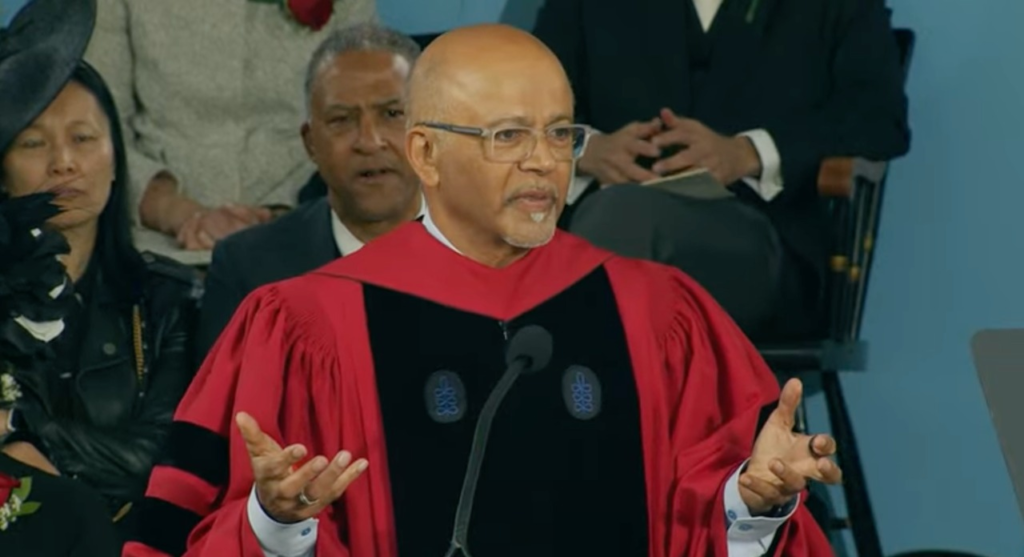Abraham Verghese admitted to thousands of Harvard graduates and their families on Thursday that he had his doubts about whether he should be the one to deliver the institution’s 374th commencement address.
But he realized he was the right person for the job as the Trump administration revoked a key certification that allows Harvard to enroll international students — along with a “cascade of draconian government measures” taking place across the country.
“Perhaps it’s fitting that you hear from an immigrant like me,” he said.
Verghese is a Stanford University professor, infectious disease doctor and best-selling writer. He was born in Ethiopia when it was ruled by an emperor and he lived under a military leader. He has seen at least one medical school classmate be tortured and disappear, he said during his speech.
He said immigrants keep the country alive and believe in America.
“The greatness of America, the greatness of Harvard is reflected in the fact that someone like me could be invited to speak to you,” he said.
Read more: Shadow of Trump administration hangs over Harvard University commencement
The 374th commencement occurred at the same time that the institution fought in federal court in Boston over the certification being revoked.
Harvard has two lawsuits against the Trump administration, including one focused on the revocation of the certification. The institution asked for a temporary restraining order, which a federal judge allowed. The judge also sided with Harvard on Thursday, approving a preliminary injunction.
The fight against the federal administration is a courageous one, according to Verghese.
“More people than you realize are grateful to Harvard. For the example it has set by your willingness to look inward to make painful and necessary changes. But then ultimately, by your clarity in affirming and courageously defending the essential values of this university and indeed of this nation,“ he said.
The U.S. Department of Homeland Security gave Harvard a notice of its intent to withdraw the certification on Wednesday, which the institution has 30 days to respond to.
Trump has also suggested a 15% cap on international students at Harvard University.
Harvard has been visible in taking decisions that are “worthy of your university’s heritage” and ones that will shape the institutions’ character, Verghese said.
“Graduates, the decisions you make in the future when under pressure will say something about your character. While they will also shape and transform you in unexpected ways, make your decisions worthy of those who supported, nurtured and sacrificed for you,” he said.
What has happened at Harvard?
Harvard has been in a battle with the federal government since April.
There has been a wave of federal research grant terminations at Harvard University, in addition to $60 million in multi-year grants, a $450 million cut and a $2.2 billion freeze.
In addition to barring Harvard University from acquiring new federal grants, the Trump administration directed federal agencies to cut off existing contracts with Harvard or transfer them to other vendors on Tuesday.
Harvard President Alan Garber wrote in a letter to U.S. Secretary of Education Linda McMahon that they share the same “common ground,” but the university “will not surrender its core, legally-protected principles out of fear.”
Garber pushed back on the administration through a lawsuit in April. The institution argues that its constitutional rights had been violated by the government‘s threats to pull billions of dollars in funding if the school didn’t comply with demands for an overhaul. Following the $450 million announced cuts, the university amended its lawsuit.
“No government — regardless of which party is in power — should dictate what private universities can teach, whom they can admit and hire, and which areas of study and inquiry they can pursue,” the suit reads.
Due to the federal cuts, Harvard announced that it was committing $250 million of “central funding” to support research impacted by suspended and canceled federal grants.


